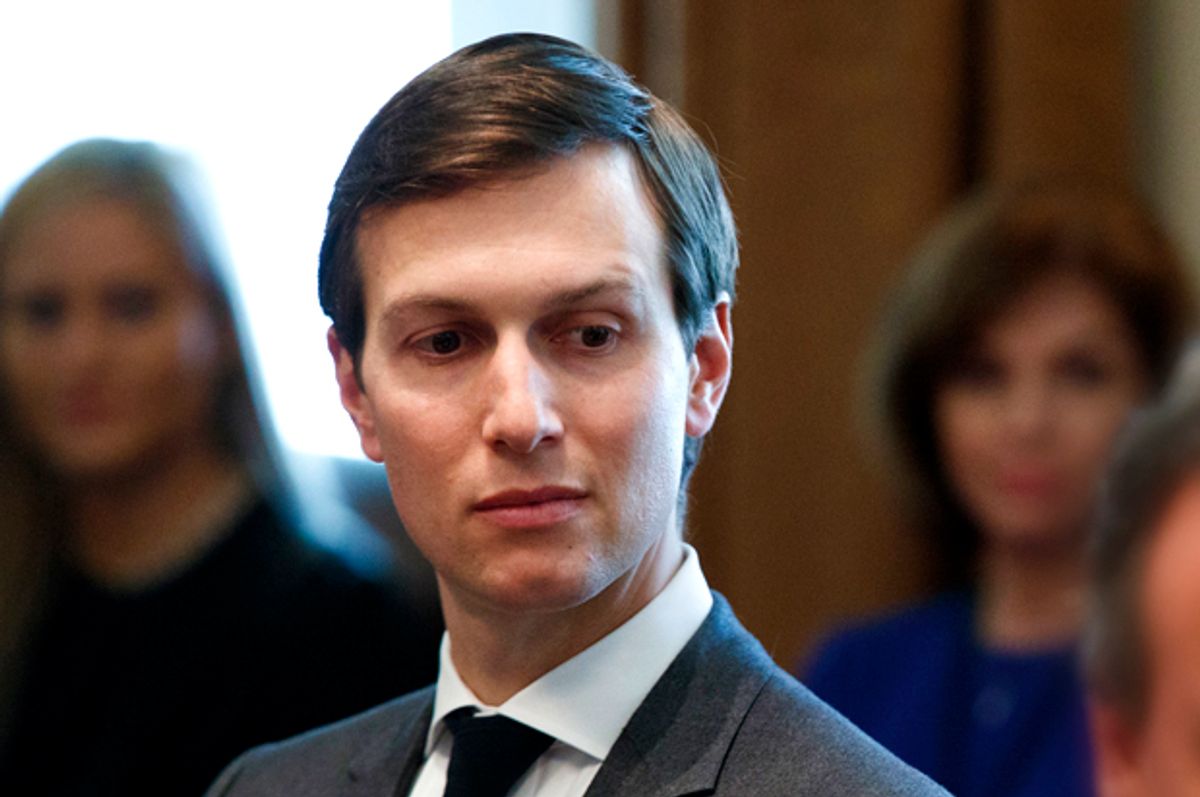The real estate development firm partly managed by the sister of White House senior adviser Jared Kushner has issued an apology over a weekend event in Beijing in which Kushner’s name was used to attract wealthy Chinese to a cash-for-visa scheme commonly used by investment-hungry U.S. real estate developers.
Kushner Companies “apologizes if that mention of [Kushner] was in any way interpreted as an attempt to lure investors,” the company said in a statement emailed to NPR and other news outlets. The apology stops short of admitting that the company was leveraging Kushner’s role in the White House and his relationship to the president, his father-in-law.
Nicole Kushner Meyer, Jared’s sister and a principal in the family-run business, was in a ballroom at Beijing’s Ritz-Carlton hotel on Saturday asking a roomful of wealthy Chinese investors to consider investing $500,000 apiece in a New Jersey luxury apartment complex overlooking the Hudson River across from lower Manhattan.
In return, the investors would qualify for an EB-5 investor visa, a fast track to permanent legal residence in the United States. The visa program is so popular with China’s wealthy elites that it’s commonly referred to as the “golden visa.” Promotional materials distributed at the event introduced Meyer as Kushner’s sister and prominently displayed images of Donald Trump.
Though the event was publicly advertised in Beijing, reporters interested in covering it were turned away at the door.
The event, and the name-dropping, underscores the minefield of conflicts of interest Jared has as one of the president’s closest advisers with an immense portfolio of responsibilities ranging from working toward peace in the Middle East to reorganizing the federal government to run more like a corporation. Jared has also become an important intermediary between Chinese officials and his father-in-law.
Jared claims he’s divested from his family businesses, but the holdings remain closely held by family members, including by his brother Joshua, who took over Jared’s stake in the New York Observer newspaper, and mother Seryl, who could return Jared’s interests in the family-run real estate empire after he leaves his position in the White House. Critics say this falls way short of true divestment.
“This quick shuffling of assets among family members could easily be undone immediately after Mr. Kushner leaves the Trump Administration, which calls into question whether these transactions actually help resolve any conflict issues,” Matthew T. Sanderson, a lawyer at Caplin & Drysdale and former general counsel to Sen. Rand Paul’s presidential campaign, told Salon in January.
Though Meyer’s presentation stopped short of claiming outright that Kushner Companies has special access and privilege to the White House, the Chinese are well accustomed to seeing the children of their own political elites harboring considerable political influence and power. The subtext seemed clear.
“Invest early, and you will invest under the old rules,” one speaker said, according to the Washington Post, which first reported about the event, referring to the possibility that the Trump administration might alter the rules of the EB-5 program and make it more difficult to acquire the visa.
The visa allows principal investors and their immediate family members to live and work legally in the U.S. in exchange for a minimum investment of $500,000 in a commercial enterprise that creates at least 10 permanent full-time jobs.
The visa program has been wreaked with criticism for the way it’s been administered.
The minimum required investment is typically $1 million, but a special rule allows the minimum to drop to $500,000 if a project includes an economically depressed area. In crowded urban zones, developers have been found to gerrymander projects to allow them to offer the lower investment amount.
There have also been questions about the economic benefits of the program, and whether it creates a satisfactory number of permanent full-time jobs.
The EB-5 program is also not always a good deal for investors; a 2010 Reuters investigation found that nearly half of foreign investors that had participated in the program since its creation in 1991 were never able to obtain permanent residence because the projects failed to meet the job-creation requirement.



Shares